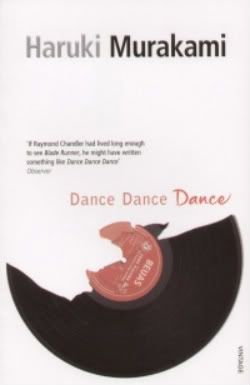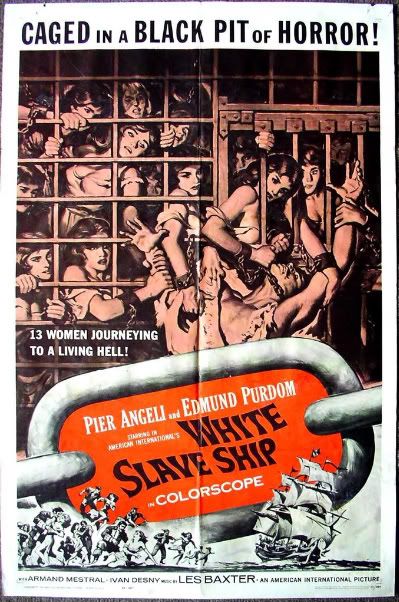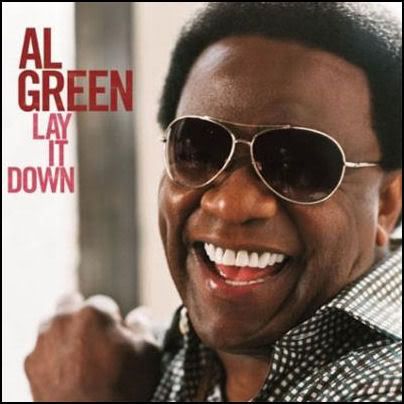Do you remember the first time you heard Jimmy Cliff's voice on Many Rivers To Cross or Sam Cooke on Touch the Hem of His Garment? Do you remember how it stopped you in your tracks, made you sit up and listen and, ultimately, blew you away? Ted Hawkins' voice has the same effect on me, but he is talked about and cited amazingly infrequently. I feel, therefore, that it is my duty to write about him, and perhaps even introduce his music to some new ears.
Busker, con, wanderer. Ted Hawkins was many things, but labels and descriptions are not nearly so important as that voice...a voice that should not be forgotten and, indeed, will not be forgotten by those who have heard it.
Born in Lakeshore, a small town not far from Biloxi, Mississippi, on 28th October 1936, Hawkins' life was a tough one from the outset. His story is the blues...the unwanted son of an alcoholic prostitute mother and absent father, institutionalised by the age of 12, hoboing his way around the States and playing for pennies on the boardwalk of Venice Beach, drug addiction, the death of his second wife just two months into their marriage, unrecognised and under appreciated. It is almost ironic that Hawkins died within a year of starting to get the recognition he deserved.
By all accounts, the musician in Hawkins was awoken during a stint in the reform facility Oakley Training School in 1948 (his formal education came to an end when he was asked to leave grade school due to poor hygiene), where he received encouragement from a piano teacher and his voice was noticed by the wife of the superintendent. A visit to the school by New Orleans pianist Professor Longhair inspired him further and he began to write his first songs and performed in a talent show.
It was not long before he was once again in trouble with the law, receiving a three year prison sentence at the age of 15 for stealing a leather jacket. During this spell of incarceration (at Parchman Farm), his mother would die of cirrhosis. Upon his release, he began to travel around the United States, hitching free rides on freight trains from Mississippi to Florida, New Orleans, Chicago, New York and finally, by the mid-1960s, Los Angeles.
Hawkins started to perform on the boardwalk of Venice Beach, making a small income from the passers by, but finding himself unable to achieve any greater attention, or to keep out of trouble on any consistent basis, spending many spells in prison and addicted to heroin. He is purported to have known Charles Manson in jail, describing him as a great guitar picker who had helped him with his own playing. He played his guitar 'Vestapol' style, with open C tuning, which is known to be especially tough on the fingers. Busking eight to ten hours per day just to make his rent money, Hawkins took to wearing a black leather glove on his left hand, which became something of a trademark. Underneath this, he would wrap his third finger in gaffer tape. The glove did not slide easily along the neck of his guitar and therefore he used to use lots of talcum powder as 'lubrication' - people who saw him perform sometimes associate this smell with him.
Absorbing various types of music and making little distinction between genres, it really is difficult to pigeon hole his sound - an amazingly soulful voice over blues roots with shades of folk, country, gospel, and perhaps even reggae. Music writer Peter Guralnick has called it "a rural adaptation of contemporary soul music". Hawkins' idol was Sam Cooke and he was noted for his covers of Cooke, Otis Redding and Curtis Mayfield, as well as Bob Dylan and Simon and Garfunkel, during his street performances.
As Ted 'Soul' Hawkins, he recorded his first single Baby/Whole Lotta Woman in 1966 for the Money label, but it was not until 1971 that someone really took notice. This person was Bruce Bromberg, who had seen Hawkins busking in Venice Beach. They cut some tracks together but, shortly afterwards, Hawkins would once again wind up in prison. These recordings were eventually released eleven years later, in 1982, by Rounder Records as Hawkins' debut album Watch Your Step - it was not until after the album came out that Ted was released from California Medical Facility in Vacaville, clean of heroin and ready to return to his 'job' as a boardwalk entertainer, sitting on his milk crate and serenading the crowds.
In 1986, Andy Kershaw of UK's Radio 1 travelled to the US, unannounced, to record with Ted. Championed by Kershaw and enjoying a greater level of renown in the UK than in his homeland, he was persuaded to move there and capitalise on this relative success. He moved to the seaside town of Bridlington, East Yorkshire and released his second album Happy Hour. Following an appearance at the notorious Glastonbury festival in 1989 and a 1990 tour of the UK and Australia, Ted returned to his adopted home of California - stories differ as to whether this was because he was more comfortable with the anonymity that he had grown accustomed to there, or whether he was actually deported.
It was the title song of Happy Hour that first served to introduce me to Ted Hawkins' voice. It reminds me of my childhood when, fooled by all those major chords (Hawkins used major chords exclusively which, despite frequent lyrical heartbreak, lend his songs an upbeat feel) I really did think that it was just about having a good time. Seeking out this song and listening for the first time as an adult, the emotional punch packed a big double-whammy. Here are some of the lyrics:
"Welcome to happy hour
Blinking on the neon sign
She won't mind if I stop for just one
I could still make it home in time
As my eyes grow accustomed to the smoke and dim light
I see the jukebox near the door
There she is in another man's arms
Slow dancing across the floor
So this is happy hour
Two drinks for the price of one
People laughing and having fun
What a great place to be
Welcome to happy hour
They gather here every day
Cheating is one of the games they play
This time it's on me"
Happy Hour - Ted Hawkins
Don't Make Me Explain It - Ted Hawkins
Buy Happy Hour
It was in 1994 that Hawkins' major label debut The Next Hundred Years was released on Geffen, and this is when he finally began to receive some attention in the US, and toured extensively. By a cruel twist of fate, he died within a year of its release, suffering a diabetes-related stroke on December 29th 1994 and passing away on New Year's Day 1995. He was survived by his (third) wife of almost thirty years, Elizabeth, and their five children - Elizabeth, Tina, Carmen, Adrienne and Theodore.
Jimmy Guterman has this to say:
"Without a doubt, 1994 was the happiest, most successful, most satisfying year of Ted's life. His unexpected death from a stroke on New Year's Day 1995 was cruel and tragic, but he passed on knowing that his music had finally connected, he passed on having been loved and accepted for the most constant thing in his life: his music"
There Stands the Glass - Ted Hawkins
Ladder of Success - Ted Hawkins
Buy The Next Hundred Years
Less than two months before his death aged only 58, the whole show of Ted's performance of November 5th 1994 at McCabe's Guitar Shop in Santa Monica was recorded, and was ultimately released as The Final Tour. This would be a great place to start with his music if he's new to you, and the songs arguably sound better than the studio-recorded versions...Hawkins was, after all, first and foremost a live and acoustic artist. Here, his astounding cover of the Webb Pierce standard There Stands the Glass starts the show, with a wailing opening note and absolutely pitch perfect delivery. His a capella cover of John Fogerty's Long As I Can See the Light is spine-chillingly beautiful. The emotion in his voice is heartbreaking...and heart-warming right at the same time. He sounds truly at home.
Buy The Final Tour
Ted Hawkins was an incredible natural talent who did not receive the limelight he was due, and he should not be forgotten...he is not talked about nearly enough!
Other noteworthy songs (a selection from many):
All I Have To Offer You Is Me, I Got What I Wanted, Bad Dog, Revenge of Scorpio, Missin' Mississippi, Green-Eyed Girl, Long As I Can See the Light (John Fogerty/Creedence Clearwater Revival cover), Groovy Little Things, Green-Eyed Girl, Afraid, Cold and Bitter Tears, Strange Conversation, I Got What I Wanted.
TED HAWKINS (1936-1995)























